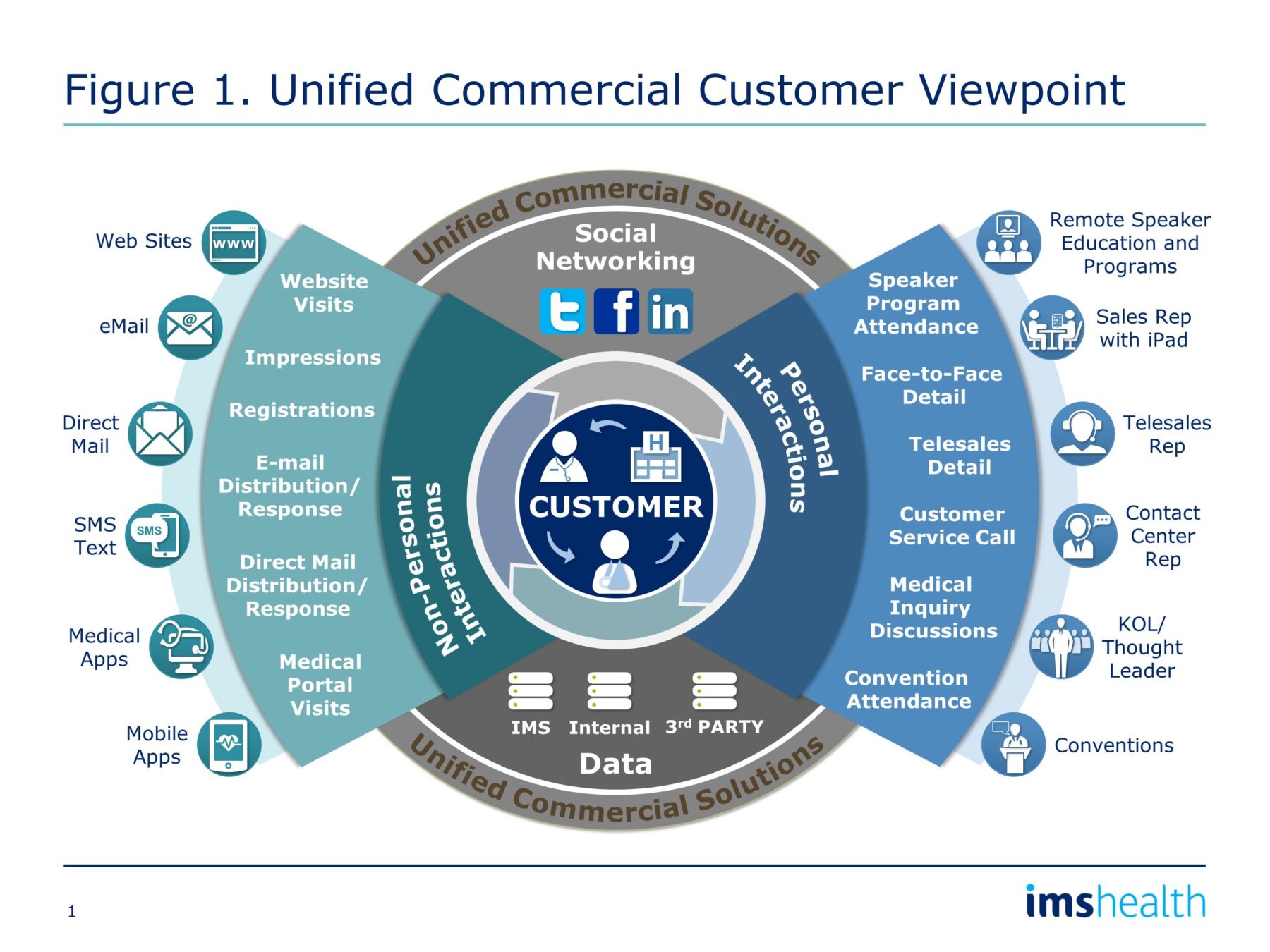Brand teams that wish to create a personalized experience for the customer via multi-channel and closed-loop marketing must be able to track relationships and behavior using master data for an individual or entity across an entire organization. However, marketers are sometimes working with insufficient data and not aware of the impact of quality data on marketing programs. With a vested interest in the scope and quality of customer master files seamlessly integrated with promotional activity, brand teams now need to have more knowledge and awareness of the data they need, how it can be consumed and the functionality that is needed to implement effective marketing campaigns.
When all customer interactions are shared across sales and marketing, details on marketing campaigns can be pushed to sales, and then feedback from sales can be looped back to marketing for real-time campaign assessment and adjustment. Similarly, when reps have information on all customer activities, they can be resourceful with better information about messages and campaigns, which provides a more meaningful and beneficial dialogue with the customer.
Consistent View of the Customer
The entire commercial organization needs a consistent view of the customer through many applications, including targeting, segmentation and performance management (Figure 1). Having a good, clean universe of constituents that can be trusted as complete and accurate is a prerequisite for commercial success. That foundation can then be layered with other technologies such as customer relationship management, sales force automation, business intelligence and analytics.
The reality for marketers is that we’re now living in a world where data and technology go hand in hand. By infusing data—comprehensive, accurate and digestible data—into applications, companies can deliver personalized experiences to customers. Personalized interactions with customers based on their preferences, either stated or derived, create loyalty and alignment with customer insights.
Ensuring the success of dealings with customers starts with an ability to keep track of things behind the scenes through an effective Master Data Management (MDM) system. This means having detailed information on customers, their engagement patterns, information preferences, privacy, affiliations and campaign history with the company. Similarly, the key to being able to measure the success of those interactions is having easy access to data that is both digestible and actionable.
How Master Data Management Has Changed
In the past, MDM solutions were large, bulky and rigid, and were as off-putting as they were inflexible. These solutions provided insufficient data and could not keep up with the unique programs brand managers longed to create in order to drive brand performance.
Today, however, MDM solutions are integrated, smart, flexible and ready to deliver value right out of the gate. What’s more, they are available in a software-as-a-service (SaaS) model, meaning that outside experts can provide end-to-end MDM support. This can encompass strategy development, architecture development, hosting, ongoing data governance and even underlying data assets. It is the combination of the people, process, data and technology that truly separates today’s MDMaaS solution from those of the past.
Model MDM systems are overseen by well-established governance and stewardship roles with the authority to manage the definition, quality, distribution and integration of data across business functions. The MDMaaS provider can offer pre-defined templates, frameworks and processes to jumpstart an organization’s approach. These include recommendations on data structures and harmonization, quality assurance, access guidelines, reporting formats and governing bodies—ideally from experts who understand the customer, industry and data, and its use on both a macro and micro level. In this way, the provider can impart experience borne over scores of implementations and apply best practices developed across multiple situations.
As powerful as MDM systems are, the benefits of MDMaaS are not driven by the provider’s implementation experiences alone. The underlying data assets are critical in completing the solution. Time to insight is enhanced through a pre-connected view of the healthcare professional that is automatically linked via affiliations and is seamlessly tied to the prescription and sales information for each professional.
Brand teams are key consumers of master data and need to have an overall understanding of MDM and how it can be used to drive insights, better brand performance and gain control over the view of their target audiences. Even when ongoing responsibility for data governance and stewardship is contracted externally along with the technology platform through an MDMaaS arrangement, marketing departments need to be key stakeholders with input into how the basic building blocks of relationship marketing are handled.






